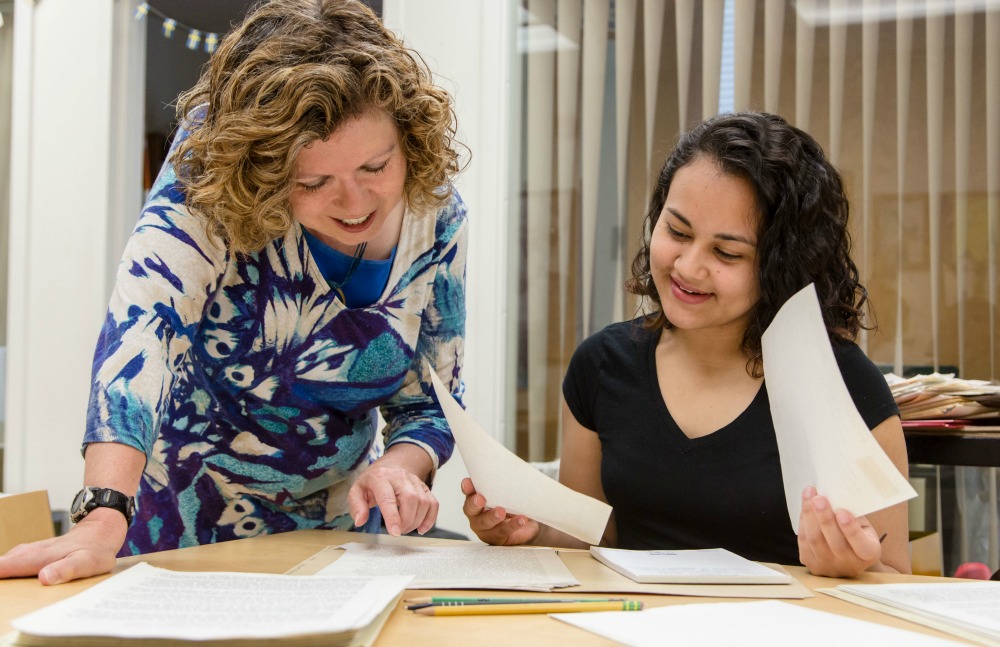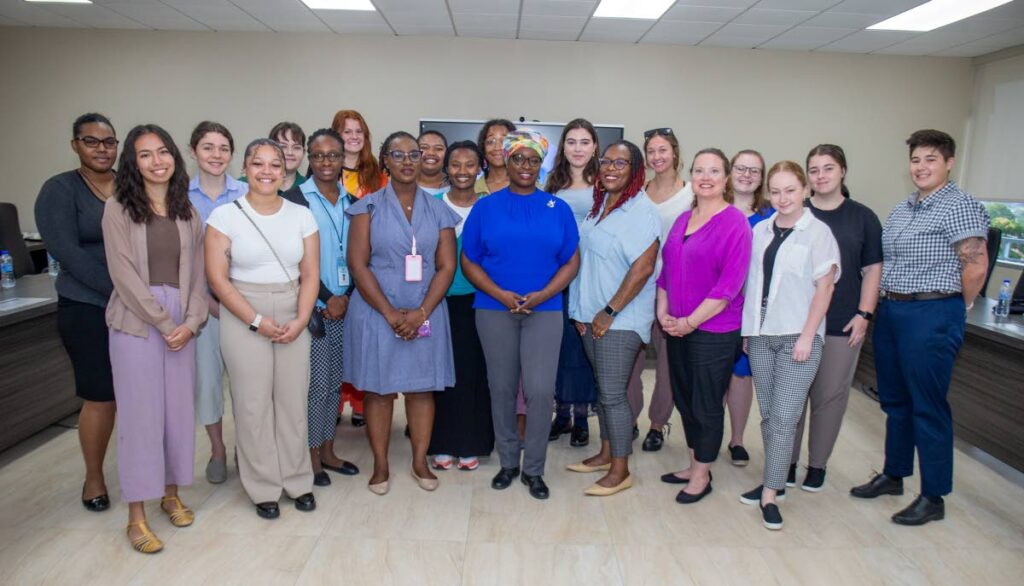Page 25 • (13,403 results in 0.026 seconds)
-
University Core Requirements: The General Education requirement of four hours in philosophy may be satisfied with any course offered except for 233 Formal Logic, and 499 A/B Capstone.
Core Requirements, Majors and Minor in PhilosophyUniversity Core Requirements: The General Education requirement of four hours in philosophy may be satisfied with any course offered except for 233 Formal Logic, and 499 A/B Capstone. The initial course in philosophy is customarily 101, 125, or a 200-level course that provides a more focused topic but is still at the introductory level (220, 223, 228, 230, 238, 253). The 300-level courses are suited for students with particular interests who are
-

First, we are glad that you chose PLU. Our mission is to prepare students for lives of thoughtful inquiry, service, leadership, and care – and we definitely care about you and your growth as a learner, a person, and a historian. Whether you are starting…
The Smooth Path to a BA in History! Ready to Join Us? Posted by: shimkojm / October 17, 2018 Image: Prof. Gina Hames and history major Sandra Estrada ’20 October 17, 2018 By Department of HistoryFirst, we are glad that you chose PLU. Our mission is to prepare students for lives of thoughtful inquiry, service, leadership, and care – and we definitely care about you and your growth as a learner, a person, and a historian. Whether you are starting your first year, your second, or your third
-

Professor Emeritus of Mathematics | Department of Mathematics | meyernc@plu.edu | Chris has been at PLU since 1970.
Chris Meyer Professor Emeritus of Mathematics Email: meyernc@plu.edu Professional Biography Education Ph.D., Mathematics, University of Oregon, 1970 M.A., Mathematics, University of Oregon, 1967 B.S., Mathematics, Reed College, 1966 Areas of Emphasis or Expertise Differential Geometry and the History of Math Biography Chris has been at PLU since 1970. He will be retiring as of May 2010.
Contact InformationArea of Emphasis/Expertise -
The mission of the Office of Institutional Research at Pacific Lutheran University is to support the achievement of the University mission by providing timely, accurate, and unbiased data and
Office of Institutional Research and Analytics At Pacific Lutheran University, the Office of Institutional Research & Assessment (OIRA) is committed to advancing the university’s mission by delivering precise, timely, and actionable data that drives informed decision-making, strategic planning, and continuous improvement across all levels of the institution. Mission Statement: The Office of Institutional Research at Pacific Lutheran University supports the University’s mission by providing
Office of Institutional Research -
The Department of Sociology and Criminal Justice at Pacific Lutheran University teaches students to understand the social and structural context of our human experience.
Criminal justice major Raphi Crenshaw ’24 interned at Tacoma Pro Bono and plans to attend law school Read Article Systemic Racism Statement Read the Statement Why Study Sociology? Sociologists investigate the structure and development of individuals, communities, organizations and societies. Few disciplines have such broad scope and relevance. Quick Facts Sociology major Allen Tugade ’24 has been a dynamic researcher and student leader at PLU More Sociology & Criminal Justice at PLUWhether we
Professor Laura McCloud, ChairXavier Hall, Room 242 12180 Park Ave S Tacoma, WA 98447-0003 -
May 1st Join the Mathematics Department to hear the senior capstone presentations.
Standards. 2:00-2:25pm – Polynomial Rings and Connections with Common Core Math Standards Andrew Curran We begin by introducing the Common Core State Standards in Mathematics and their history, as well as bringing in some examples of high school math standards. We then introduce abstract algebra concepts, defining terms such as rings, fields, and polynomial rings, as well as showing how arithmetic works in polynomial rings. Next, we introduce and prove the Division Algorithm. We conclude the paper by
-
Philosophy Major: A Bachelor of Arts in Philosophy requires a minimum of 32 semester hours from the following requirements: PHIL 499 Two courses from: PHIL 311, 312, 313, 314 Five additional PHIL
the student’s philosophy program. Transfer students will normally take 16 or more of their 32 hours at PLU. Students intending to major in philosophy should formally declare this with the department chair and choose a departmental advisor. Students must be a declared philosophy major in order to be eligible for departmental scholarships. On approval from the department, one course (4 hours) in another field of study may be used for a double major in philosophy if it has a direct relationship to
-
Table of Organization (pdf) view page Click on drop down menu on "About" section of President's website and click "Organization Chart" to view most up-to-date version.
-

January Term (J-Term for short) , PLU’s month-long term between fall and spring semesters, is when many of our students take advantage of our incredible study away options in multiple places around the world. Planned and coordinated by professors and PLU’s study away center, J-Term…
PLU students intern with Trinidad and Tobago Division of Health, Wellness and Social Protection Posted by: mhines / February 12, 2024 Image: PLU students at the Division of Health orientation during J-Term 2024. February 12, 2024 January Term (J-Term for short), PLU’s month-long term between fall and spring semesters, is when many of our students take advantage of our incredible study away options in multiple places around the world. Planned and coordinated by professors and PLU’s study away
-

Meet the Communications department’s most recent faculty member, Dr. Marnie Ritchie. Dr. Ritchie joined PLU in 2018 and has taught a variety of communications classes since then, from introductory communications to courses covering complex topics like gender and ethics. Dr. Ritchie’s other interests for her…
. What is your educational background? I received a B.A. in Philosophy from the University of Vermont, M.A. in Communication and Rhetorical Studies from Syracuse University, and Ph.D. in Communication Studies from the University of Texas at Austin. I found the study of communication through collegiate debate. Why did you want to teach at PLU? What PLU does best is mentorship. PLU encourages instructors to teach creatively and inspires students to tap into their strengths and passions. Here, I get
Do you have any feedback for us? If so, feel free to use our Feedback Form.


